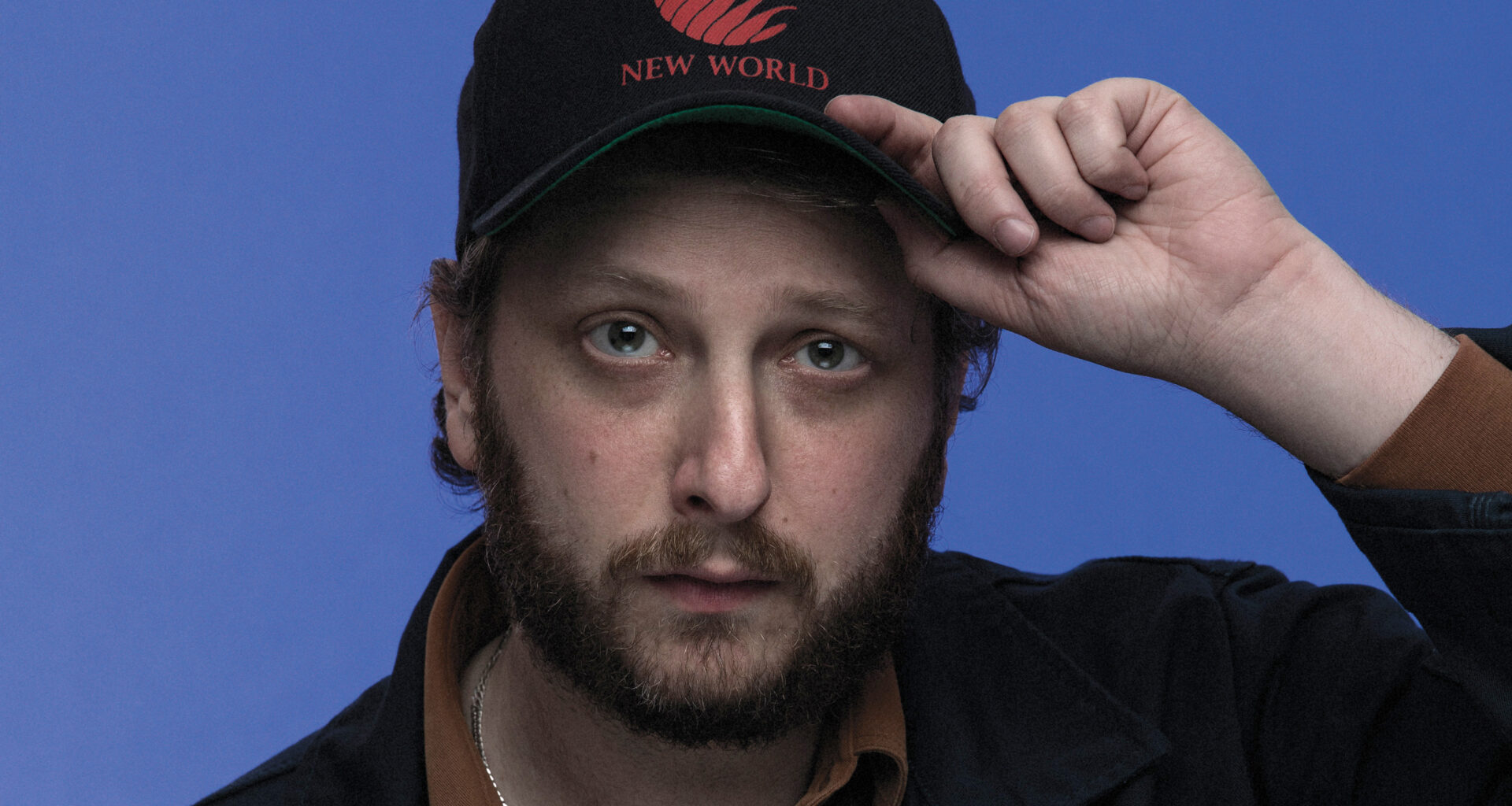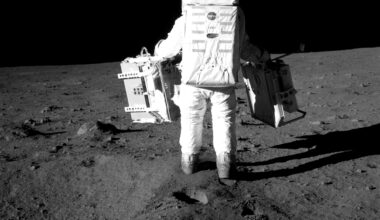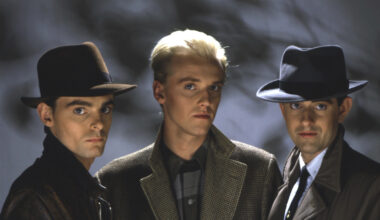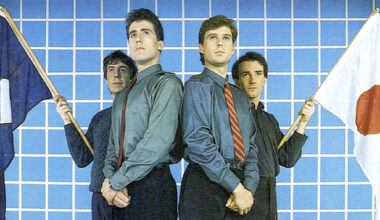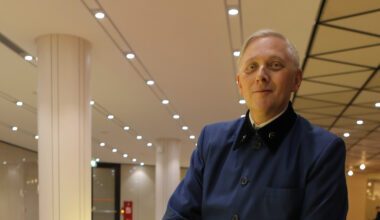Films played quite a role in the making of the new Oneohtrix Point Never album, ‘Age Of’. Recording alone in a rented a house on the hill that freaked the bejesus out him at night, Daniel Lapotin talks Kubrick, harpsichords, alien regression and, erm, ‘The Great Whatsit’…
Daniel Lopatin laughs when he recalls the strange and surreal surroundings in which he made his new album ‘Age Of’ over the summer of last year. Not least the “utterly stupid” logic that led him there.
“I recorded the album in a suburb of Massachusetts,” he says, ensconced in the relative safety of a meeting room in the north London offices of Warp Records. “I’d taken all my sketches and checked out of New York in a complete cliché of the composer heading to the woods to write. I thought that was so utterly stupid that I had to experience it once. So I went out there and I can assure you it was stupid. It was absolutely ridiculous, sitting in this ’burb and writing.
“The house I was working in was fairly strange, it’s like an anomalous architectural thing where it’s mostly rounded and there’s glass everywhere, which is great during the day, but at night it’s just terrifying because it’s like, ‘Who’s watching me?’ in this bizarre-ass suburb where I don’t belong. I was in this house where the lights are usually off and it’s lit up and it’s on a hill and it’s surrounded by houses that look nothing like it. I felt this sort of judgement coming up the hill. And on top of that, the moths and insects were just hitting the glass all night, so there was constantly this irritating thump of boof… boof… boof…”
The whole experience had what Lopatin calls a ‘Straw Dogs’ aspect to it, referencing the 1971 film where a young American couple move to an isolated Cornish village, with distinctly unpleasant results.
The world of film figures largely in conversation with Daniel Lapotin, who scooped the Soundtrack Award at last year’s Cannes Film Festival for his work on ‘Good Time’, starring Robert Pattinson. He confesses that he had wanted to become a film director when he was younger, and recently directed the video for ‘Black Snow’, one of the tracks on the ‘Age Of’ album.
“Although I wouldn’t say directing music videos is the same thing as directing films at all,” he’s quick to point out. “But I’m just starting to get a little taste for pain – directing is hard!”
The summer he spent writing and recording ‘Age Of’ was fuelled by a huge consumption of films. For starters, his wife stayed in New York. “She couldn’t come out for two reasons,” he laughs, “One is that she was working, and two, she didn’t want to. She came out once and was like, ‘I understand why you’re here and this is really good for the record, but it’s giving me the creeps so, I’m going back to New York.”
So apart from making music, his routine almost exclusively involved driving to the supermarket, buying groceries, driving back and making food. Friend and lyric collaborator Shaun Trujillo, thankfully, lived a mere 45-minute drive away, so he’d come and hang out and work on words that would end up on the tracks ‘Black Snow’, ‘The Station’ and ‘Still Stuff That Doesn’t Happen’ using Burroughs-esque cut-up techniques, loops and random phrases purloined from his poetry and emails.
But mainly Lopatin “did a lot of stretches, tried yoga briefly and watched a shit-ton of movies. At night it was so lonely and so scary you just needed to have stuff blaring out, so I’d always have something on television. It was usually [sci-fi cartoon] ‘Rick And Morty’ on repeat, but we were really severely into Kubrick that summer, I got really obsessed with ‘2001: A Space Odyssey’. ”
Lopatin is full of praise for the legendary director, who left his mark on both the ‘Age Of’ album and his forthcoming ‘Myriad’ live spectacular which he’ll be rolling out in the US and UK.
“Nothing Kubrick made isn’t completely outstanding, everything is like a huge achievement,” he says. “Even the early stuff like ‘The Killing’ is cool. In his early work he doesn’t seem to have developed his sense of style yet, but style is overrated I think.”
From watching Kubrick’s 1975 period drama ‘Barry Lyndon’, set in the 18th century, he developed a fascination with early music and instruments and musical machines like hurdy-gurdys.
“I really got into the amazing arrogance of the harpsichord,” he laughs. “It’s like this dumb instrument that refuses to have any sensitivity. No matter how soft you touch it, it has the same velocity. It’s like an idiotic piano. That’s fun to me.”
The album opens with its title track, and the sound of a harpsichord being gradually distressed and messed with until it becomes disorientating and futuristically nightmarish.
“It’s fun when you get harpsichord sounds played back in MIDI and you start messing around with hearing a harpsichord being pulled apart in a weird way. I got really into that.”
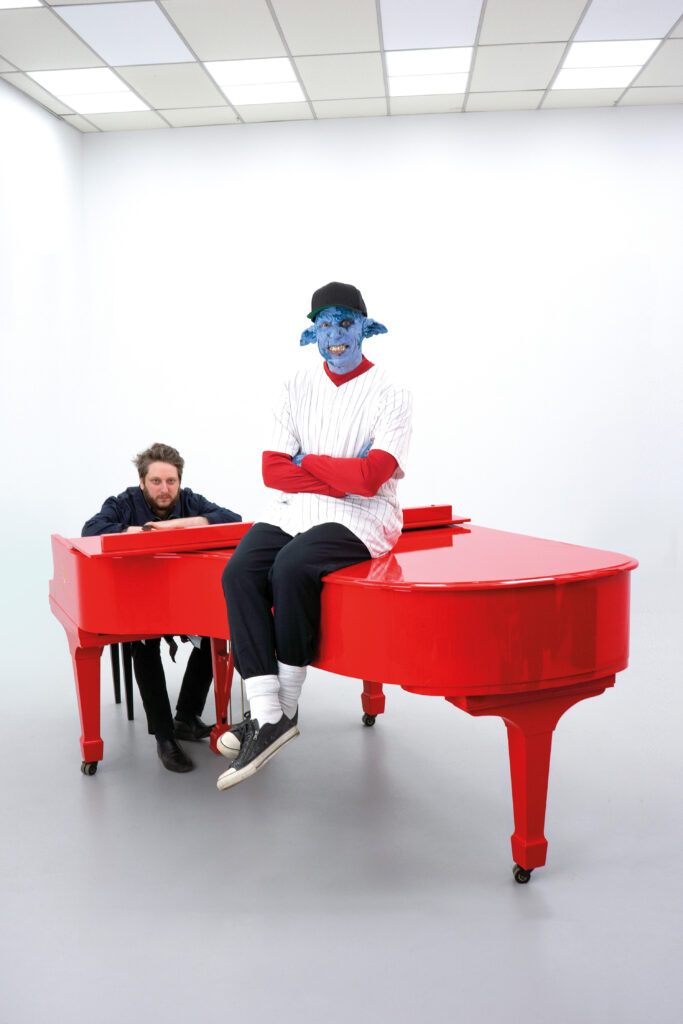
With both ‘Barry Lyndon’ and ‘A Clockwork Orange’, which is soundtracked by Moog wizard Wendy Carlos, Lopatin says he can sense the ironic way that the director is using music. He says he’s simultaneously amazed by the music’s beauty, but also sickened by “the whole experiment of it, the whole mentality of the ruling class and their architecture of society, and then the music that imbues this sort of sociological prison that’s created by these class relationships.”
Of all the Kubrick films, ‘2001: A Space Odyssey’ had the biggest impact, providing the inspiration in a perverse kind of way for Lopatin’s new live show, ‘Myriad’. The show, which will include floating sculptures and video technology alongside live performance, tells the story of super intelligent aliens who want to travel in the opposite direction. Mirroring the plot of ‘2001’, which follows humanity and its evolution from apes into the age of space exploration, but with its own very different slant.
“We were watching ‘2001’ and it occurred to me how funny and interesting it would be to invert the entire narrative arc and psychological arc of the film so that instead of aliens bequeathing apes with the ability to evolve, have tools and become violent and eventually become super intelligent, it would be more interesting if the aliens were fully formed and at the end of their evolutionary cycle, at the end of time and the end of the universe and they simply want to regress and be dumb and stupid like us.”
The concept of dumbness is one that clearly appeals to Lopatin, from his own decision to head for the woods to create ‘Age Of’ to its hilarious sleeve at the other end. The album cover uses a painting by contemporary American artist Jim Shaw titled ‘The Great Whatsit’, showing three women beholding the presence of a glowing MacBook Pro with dumfounded, almost religious ecstasy.
Lopatin didn’t know that was the title of the painting, but he’d already asked if it could be on the cover after he’d seen an exhibition of Shaw’s work at Metro Pictures in New York.
“I see this painting and I was so excited because it just spoke to me in every possible way,” he remembers, “So I just took a picture of it, texted it to my manager and was like, ‘You need to find out if this can be the cover, I doubt if Jim would be into that, but we have to find out’. She was like, ‘OK I’m on it’, and a couple of hours later she texted back saying, ‘Do you realise it’s called “The Great Whatsit”?!’. It’s literally a synonym for the title of the album. If you ask me what ‘Age Of’ means, then I’d say it’s a synonym for Jim Shaw’s painting ‘The Great Whatsit’. I love the idea that you could put any object in place of that 2012 MacBook Pro and if it’s glowing, those three women will think it’s the answer. It’s a sort of universal dumbness to this idea of wanting answers and purpose.”
So, just as the title ‘Age Of’ leaves a void (there’s no explanation of which age it actually is) so the picture contains a void, a gap into which these three women are pouring all their hopes.
“I think voids are really interesting,” he says, “I think they’re probably more important to us than we understand. They seem to represent a difference or something outside of us, but to me they are, not to wax too philosophical here, but to me they seem to be who we are. We’re constantly thinking around them, so therefore it’s not actually a void at all, it’s filled with us.”
Voids – or spaces, silences – are pretty vital in making music too. The gaps between the notes are every bit as important as the notes themselves.
“Absolutely,” he agrees, “If you were to ignore it you would end up making very functional music.”
Functional is definitely not a word you would use to describe ‘Age Of’. It’s different from previous Oneohtrix Point Never albums for a number of reasons, and it flies in the face of electronic music conventions, with many of its tracks clocking in around the three or four-minute mark, some even shorter. There’s an intoxicating mix of order and chaos, too, as traditional songwriting, voiced here by Anohni (formerly of Antony And The Johnsons fame) and New York noisenik Prurient have their offerings severely synthesised and bent out of shape, while the results remain heart-rending and very human.
The sound is distinctly different in range too, and rather like its sleeve typography, which harks back to a 70s era of extravagant, flamboyant logos, it rejects the idea that electronic music needs to be all about that bass.
“When I went out to the house to work, I didn’t bring my sub bass because I didn’t want to worry about that when I was writing. It was just a decision not to have that in the array, in the understanding of what I was making. So I made what I felt was this real throwback to a time when those mid-range bands were like the golden sound that you’d want to hear on an FM radio. I was, and still am, really bored of this ‘one part super low, one part vocal’ kind of music that a lot of recordings have these days.
“It’s the void by lieu of industry trend, but the middle is the best, it’s so rich, it’s very challenging the middle. You get a lot of elements in there that are in orbit with each other at the same time you need a really, really good arrangement. Either that or have some kind of insane genius of EQ, but I’m definitely not the EQ genius and neither is James (Blake, who mixed the LP and also plays keyboards in places). I do think it’s about finding a pocket for things to live in where they do have a truly contrasting and not redundant relationship to other sounds.”
Perhaps the most significant factor is that ‘Age Of’ is an album of sketches initially designed for other people, from demos for a Western-themed video game to ideas for Usher and FKA Twigs and ‘Still Stuff That Doesn’t Happen’ was originally written for David Byrne.
“I don’t party,” he says, and he admits being highly protective of his albums in the past. “All this stuff was happening and you’re in the soup, just living your life, and then an album happens. That was really refreshing for me, a complete 180 from previous albums where I was like, ‘There’s this church of OPN over here and no-one’s allowed in it, no-one else’s ideas are allowed, this is my little place.”
After two or three years of working and collaborating with other people, he says in conclusion: “I don’t want to be precious about it. I like this album as a weirdly sort of autobiographical thing. These sort of nuggets, these morsels of something that came from the point of view of giving…”
He pauses for a moment and then laughs, adding finally “and I just greedily took back!”
‘Age Of’ is released by Warp
